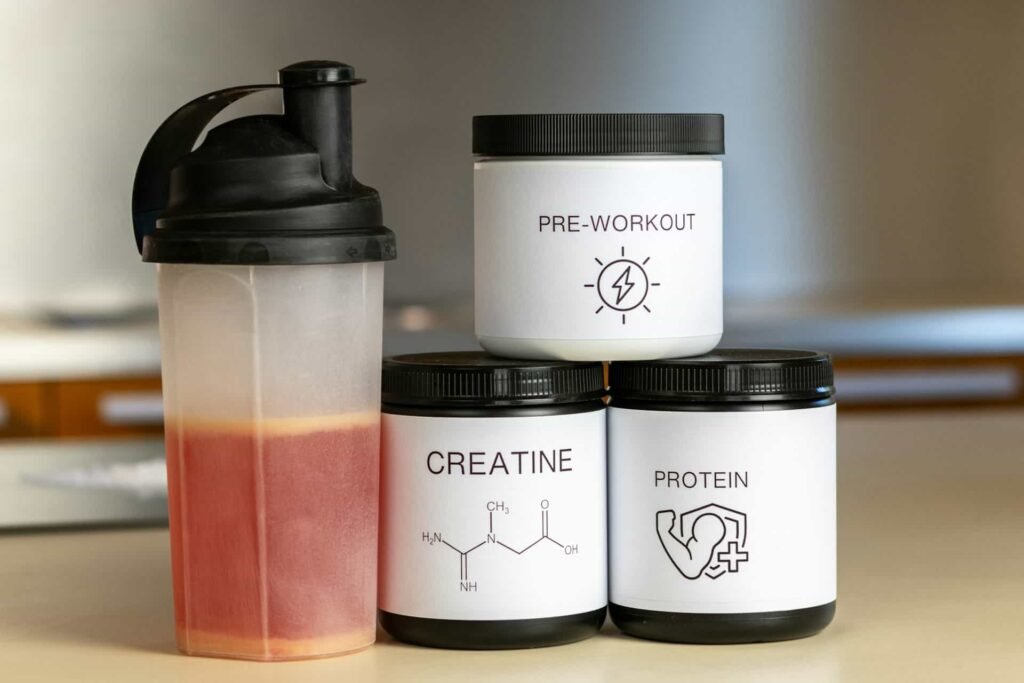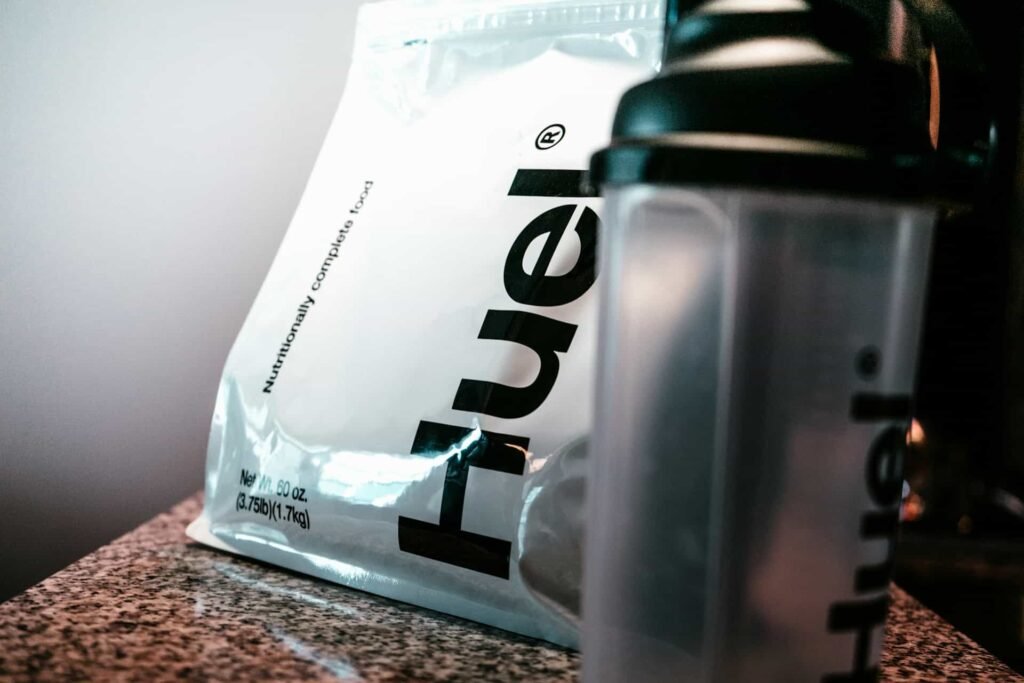If you are familiar with fitness, then you must have heard different statements about whey proteins. Some people support them, and some people think they can cause various problems.
There are different opinions and myths about whey protein. It is really hard to distinguish between facts and myths if one does not have proper knowledge about whey protein.
Why whey protein is consumed
Whey protein is mainly consumed for its convenience. It takes time to cook food whereas making a whey protein shake can be done in minutes. Also, it is easy to consume as you just need to drink it. One scoop of whey almost has 21-25 gm of protein, to get almost the same amount of protein you almost need to eat 100g of chicken.
Also, there is a caloric benefit as whey protein powder has much lower calories.
Contents
Whey Protein is a type of steroids
This is one of the most popular myths circulating around whey protein. It became popular because people were unaware of the facts.
Whey protein can be regarded as a natural food supplement. It is derived from dairy. Two types of proteins are available in milk: “whey” and “Casein.” The process of making cheese extracts whey. Through further processing, we get whey protein that is low in fat.
Steroids are biological, artificial hormones made to be used by people who have a natural deficiency of hormones. To maintain the balance of the hormones, artificial hormones are injected into people who need them. However, over time, people used steroids for the wrong purpose, artificially boosting their hormones so that they could increase muscle mass and size. Thus, the word steroids became negative for people.
Whey protein is a natural supplement, and steroids are a biological compound. Both are poles apart. The formulations of baby food and whey protein are similar, so if a baby can consume baby foods safely, then you can also consume whey proteins safely without any hesitation.
However, you should be careful about buying whey proteins, as there are a lot of fake proteins available on the market that can be harmful to your body. When buying whey protein, you should keep the following points in mind:
- Always buy proteins that are lab-certified or have global testing program certification. You can find that on their official websites.
- Check the scoop size and the ratio of the protein. In one scoop, there should be at least 70%-80% protein (in the case of whey concentrate). If the scoop size is 30 g, then there should be at least 21–24 g of protein in it. Check the label in the box to check the protein per scoop.
- Extracting whey is an expensive process. Be careful if any company is offering you at a very cheap rate.


Whey Protein Creates Digestive Issues
This statement is partially true, but we cannot blame whey protein for it. Some people feel bloated or gassy after taking whey protein.
It happens because of lactose intolerance. Whey is derived from dairy, so it contains lactose. There are 3 types of whey protein:
· Whey Protein Concentrate (WPC)
After the first step of processing the whey, we get concentrated whey protein, 70 to 80 percent of which is protein. The remaining 20 or 30 percent is lactose, different nutrients, and fats. Most of the whey protein powder available in the market is whey concentrate. It is the least expensive type of whey protein, but that does not mean it is bad. Usually, whey protein concentrate has 120 or more calories in one serving.
· Whey Protein Isolate (WPI)
When concentrated protein is further processed, we get whey protein isolate. In whey isolate, 90 to 95 percent is protein. The lactose is almost eliminated through processing. It has very little fat.
In one serving, whey isolate usually has below 100 calories.
· Whey Protein Hydrolysate (WPH)
Hydrolysate is regarded as the purest form of protein. In hydrolysate protein, the amino acids are broken into small portions, making them easy to digest. It contains more than 95% protein. However, it is usually quite expensive compared to whey isolate and concentrate.
People with lactose intolerance may experience bloating or indignation if they take whey concentrate. The best choice for them will be whey isolate or hydrolysate. We recommend whey isolate rather than hydrolysate, as it is more cost-effective and has a similar protein content.
Thus, protein causes indigestion is a myth.

Only bodybuilders or athletes should take whey protein
Whey protein is also a protein source, just in a supplementary form. The statement that only bodybuilders or sportspersons should take protein is entirely wrong.
Everyone can take whey protein to fulfill their daily protein requirement. Suppose anyone is unable to meet the daily protein requirement. In that case, whey protein can become very handy as it is easy to make and also easy to consume.
Research has stated that a full-grown person requires at least 0.8 grams of protein per day. However, individual goals can vary according to daily requirements. We have an article related to this specific topic.
In many cases, consuming whey protein has been seen as more efficient. People who have a smaller appetite find it hard to consume enough protein for a day. If they force themselves, they mostly feel bloated or feel like vomiting. In those cases, the protein requirement can be fulfilled just by gulping a glass of whey protein.
Whey Protein Makes You Muscular
People often misunderstand whey protein as some magical supplement that can build the body without lifting weights or working out. This narrative is 100% wrong. People are not to blame, as the whey protein brands have marketed their whey proteins as magical products that build muscle without trying hard.
As discussed earlier, whey is just a protein supplement; it is not magical. The protein you get from whey and the protein you get from chicken or eggs is the same. Whey will not do something extra that eggs or other rich protein sources would not.
Protein is indeed regarded as the building block of the body, and it also helps in the recovery of the tissues. However, if you do not have any foundation (Training), then in what you will lay the building blocks (Protein)?
If you work out, maintain a good diet, and consume enough protein, then the cumulative factors will help you to build muscle.
Just gulping protein will not do any good and overconsuming without burning calories will only make you fat

Women should not consume whey
Like people, whey protein does not discriminate between genders; everyone can have whey protein.
The myth is that consuming whey protein will make women muscular. This myth combines the statements that “Whey protein is a steroid” and “Protein builds the body without working out.”
This narrative is also false. As mentioned earlier, protein is a natural food supplement, and it does no magic trick to build muscle.
Protein is a macronutrient made up of different amino acids. If both males and females can eat meat and eggs, then why would consuming whey protein be different? It has not been marketed this way.
Using this misinformation, many companies have created whey protein for women, which is more costly than regular whey, which has similar ingredients.


1 thought on “Top 5 myths about whey protein”
Pingback: Should Women Lift Weights? - Daily Fitnest